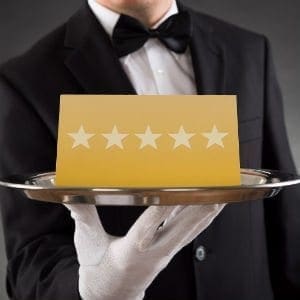 The most interesting and fascinating insight on the findings of the recent eHotelier ‘Executive Development Report’ was the strongly held view that executives should take responsibility for their own development. Conventional wisdom has, until now, suggested it would always be the organisation’s responsibility for developing their own staff, and while the results of the survey published in the report indicated that this holds true for organisational front-line staff and middle management, it does not hold true for executives.
The most interesting and fascinating insight on the findings of the recent eHotelier ‘Executive Development Report’ was the strongly held view that executives should take responsibility for their own development. Conventional wisdom has, until now, suggested it would always be the organisation’s responsibility for developing their own staff, and while the results of the survey published in the report indicated that this holds true for organisational front-line staff and middle management, it does not hold true for executives.
Why the difference? Executive development needs to meet the very specific requirements of the individual. This would depend on their experience, their career progress path and their aspirations for the future.
For operational frontline and supervisory staff, the organisation largely determines their development needs based on operational and organisational needs. Such professional development is largely targeted at knowledge and professional skills, to either satisfy competencies required of the existing job, or in preparation for a new post. Often this type of development is focused on meeting the organisational “brand standards” and ensuring that the staff respond and understand the systems and processes that the organisation requires to ensure consistency of standards and operations.
For executives the situation is very different. They are required to consider a much broader range of operational and strategic issues. The management and the development of the business requires a very different set of skills and understanding.
In a recent LinkedIn post Sam Shank the CEO and co-founder of HotelTonight writes about how for a month he kept track of how he spent his time. He describes his findings as “eye-opening”. He records that in one particularly challenging week, he spent over 80% of his time in meetings! Over a four-week period, his assessment was that he only spent 4% of his time on the “product”, 17% in external meetings, 17% board and investor time, 16% on marketing, 15% on recruitment, 12% on emails and impromptu meetings with the team, and the balance of 19% on office events and team developments, including one-on-one meetings with his staff. He discovered that what he had considered to be the priority of his role was not reflected in any way in the time he was able to devote to it.
This tells two stories. Firstly, it is difficult for executives to be in control of their own time and to be able to allocate time to strategic priorities. Secondly, the work of senior executives is complex and requires interaction between many different facets of the business.
What then would make up an appropriate executive development programme for people either aspiring to or holding similar levels of responsibility? It would need to be a program that reflects this degree of complexity and provides insights into how best to manage that complexity as well as how to allocate and prioritize time. The convention of a program based on a “curriculum” at this level of development is not going to meet those needs.
What becomes clearer is that the interaction of team members is going to be particularly important in any development programme and this must foster a new way of thinking at the strategic as well as operational level. Executive development should reflect executives current and future needs and recognise the importance of operating in the “real world”. The whole approach of learning in the real world makes the experience more meaningful, more relevant and more challenging.
To address these issues, ehotelier is now developing an executive development programme to meet the needs of hospitality executives and support them progress their careers in the real world. Have you ever kept a simple diary of how you spend your time in a given week or month? If you have, please share it with us so we can begin to see more clearly where the areas of frustration and concern may arise in hospitality executive’s roles and also how we can be best able to help.
eHotelier’s Executive Development Survey Report is available through the eHotelier Academy: Full Results $295.00 and Executive Summary $45.00.
About the author
 Professor Peter A. Jones, MBE, is the Dean of the eHotelier Academy. With a distinguished career in hospitality, education and training, Peter has been involved with national and international projects with clients involved in hospitality education. Peter is a Director the Edge Hotel School and of Hotel Future, a new education and training initiative in Greater Manchester and is a Visiting Professor at the University of Derby. He was also awarded a Member of the Order of the British Empire for services to the hospitality industry.
Professor Peter A. Jones, MBE, is the Dean of the eHotelier Academy. With a distinguished career in hospitality, education and training, Peter has been involved with national and international projects with clients involved in hospitality education. Peter is a Director the Edge Hotel School and of Hotel Future, a new education and training initiative in Greater Manchester and is a Visiting Professor at the University of Derby. He was also awarded a Member of the Order of the British Empire for services to the hospitality industry.















